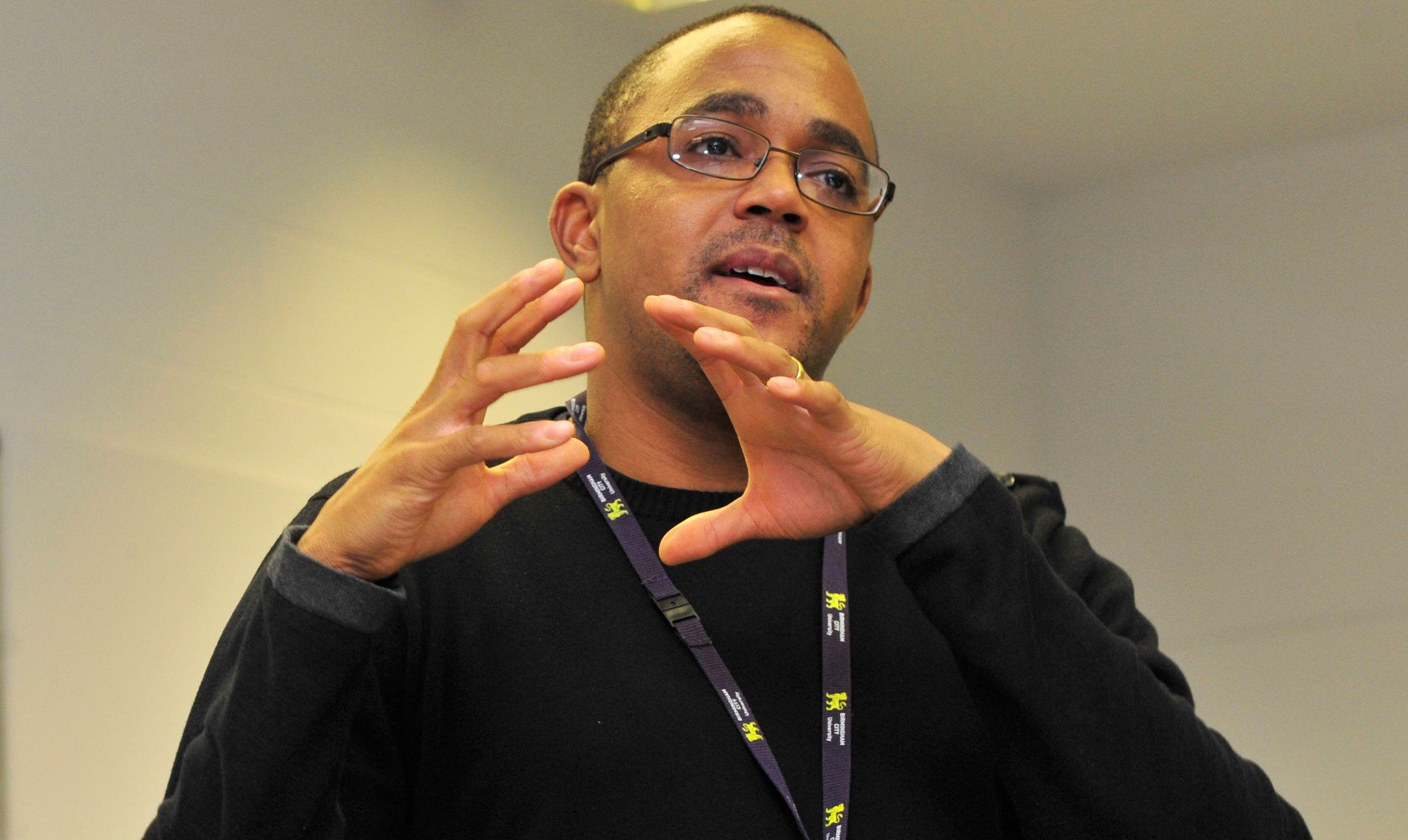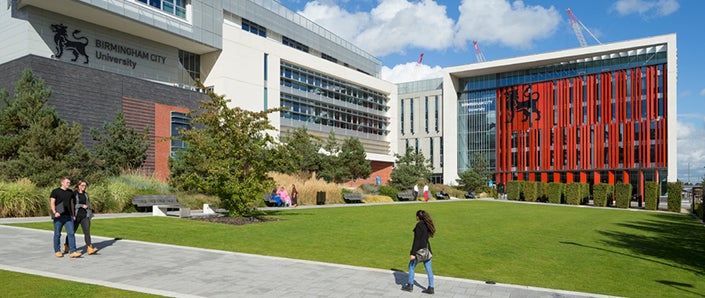Dr Kehinde Andrews: UK’s first Black Studies professor says his own university is institutionally racist
Exclusive: ‘I get treated like the uppity negro who should always be grateful for everything and stop complaining’ says academic

Britain’s first Black Studies professor has labelled his university institutionally racist, The Independent can reveal.
Professor Kehinde Andrews said Birmingham City University has failed to address his complaint of racism against a senior colleague, and that he has been “frozen out” of decision-making after voicing concerns about potentially discriminatory recruitment practices.
Instead, the academic and activist said he found himself accused of an incident of aggression — something he said is based on “racialised” inferences that he poses a threat as a black man.
“My dignity at work has been deeply undermined based on racist assumptions that I have spent my life having to avoid,” the 38-year-old said.
The university refuted “any allegations of ill-treatment” but did not want to add further comment because “legal action ... is currently underway”.
Prof Andrews said: “I get treated like the uppity negro who should always be grateful for everything and stop complaining. But I’m the kind of person who will raise issues.”
He is a frequent commentator on race issues. This week, he appeared on ITV’s Good Morning Britain to describe the Queen as “probably the number one symbol of white supremacy in the entire world”.
He said his status and public profile does not insulate him from racism. By going public with his experiences, more people will be “emboldened” to speak out about theirs, he says.
“A black professor is still black, so I’m not really surprised at all by this but it’s no fun to actually go through it,” he said. “The more successful and high-profile, the bigger the target on your back,” he said, adding that discrimination has worsened since he began leading Britain’s first and only Black Studies undergraduate course in 2017.
“It’s a reminder that just getting more people into these kinds of positions isn’t enough unless the institutions change, because even when it seems like you are successful you are subject to the same racism as everyone else.”
Less than 1 per cent of professors across all subjects at UK universities are black, accounting for just 140 people, according to the Higher Education Statistics Agency.
A report in November by Universities UK found that higher education institutions “perpetuate racism” and suggested vice-chancellors should undergo training to improve racial literacy.
Prof Andrews said his university leadership has labelled him “insubordinate” and he accuses them of not expanding Black Studies as a legitimate research area — which points to “textbook institutional racism”.

He also accuses the university of turning a blind eye to discriminatory behaviour from colleagues and failing to address his concerns about recruitment policies.
He says that, during a heated conversation about jobs in his department, witnessed by a black colleague, a senior female colleague accused him of being “aggressive” and leapt towards the door despite the fact that he was seated.
He complained to the university that the colleague’s behaviour was discriminatory, but says it refused to investigate the matter as a racist incident and instead has placed him under investigation over it.
“It all feels like a witch hunt over a series of years with the purpose to get rid of me,” he said. “I have exhausted all the internal remedies and now, where do I actually go? I’ve gone all the way through the university’s processes for years and that’s not helping.
“It t is beyond the pale that I am now in a disciplinary process for a racist incident that me and a colleague reported. Why would anyone ever report an incident if this is what happens?”
He said the pace of progress on discrimination in academia needs to change, particularly in the wake of global reckoning around race over the past year.
On the recent anniversary of George Floyd’s murder last week, Birmingham City University launched a Black Lives Matter Antiracist Commitment Plan, geared at addressing disparities faced by black students and staff.
Points include the creation of a version of the university’s logo in pan-African colours, to be shared during Black History Month and celebration of black scholars.

Prof Andrews described this plan as “an insult” given his ongoing concerns, and said it featured little consultation with black staff members.
“If you talk to anybody off the record across academia, they’ll tell you that racism is endemic,” he said. “That’s why I’m talking about it because I’ve got to the point where I don’t care anymore and I’m lucky enough to have a profile where maybe I can do it.
“The workload, stress, crazy disciplinaries for no good reason such as when you report racism ... honestly, a lot of people have similar experiences but it is a really small world.”
Prof Andrews said his elevation to professor was the subject of much promotional fanfare from the university, while he himself received little support.
“It was a PR thing but I’ve been fighting for resources and staff for several years, more support for the students. They are getting a good course and it works but it works because myself and a black colleague have to massively overstretch ourselves because the university hasn’t really put anything into it that we need.”
“I should know better because I write about this - racism - so I shouldn’t really be surprised but you invest so much time in something, you just expect better,” he said.
Prof Andrews said he underwent arbitration through Acas but this ended without resolution in February.
A Birmingham City University spokesperson said: “We are disappointed at the claims made by Professor Andrews, and refute any allegations of ill-treatment. As legal action brought by Professor Andrews is currently underway, we are unable to comment more specifically on some of the points raised.
“The high value the university has placed on Professor Andrews’s work was reflected with the award of a professorial title in 2018.”
Join our commenting forum
Join thought-provoking conversations, follow other Independent readers and see their replies
Comments
Bookmark popover
Removed from bookmarks